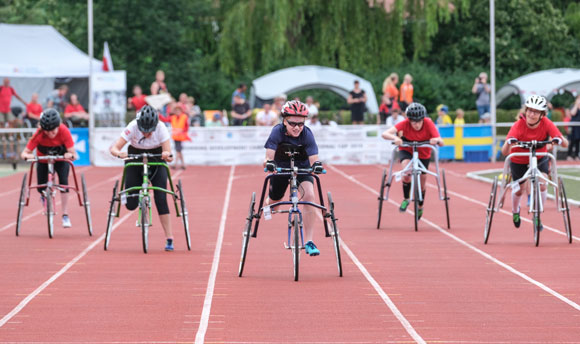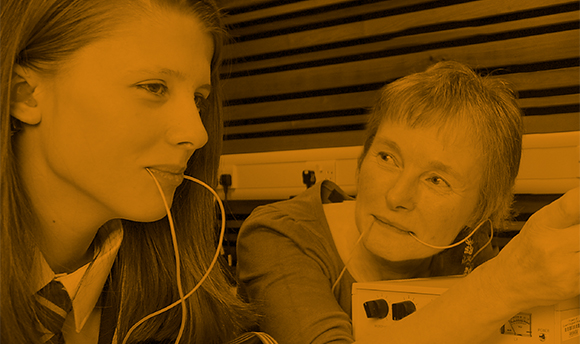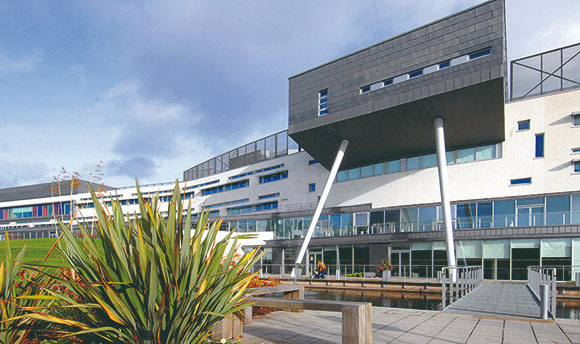QMU Two Year Self-Assessment for the HR Excellence in Research Award
This report outlines the progress made towards implementing and evaluating Queen Margaret University’s (QMU) Action Plan for the Concordat to Support the Career Development of Researchers. It should be noted that, given the small number of contract research staff at the University, QMU includes all staff (lecturers as well as contract researchers) in its approach to the Concordat, where appropriate.
Internal Evaluation
An institution-wide evaluation of support offered for researchers has been carried out over a six month period by the Research Development Manager (Research and Knowledge Exchange Unit) and the Lecturer in Research Development (Centre for Academic Practice) under the direction of the Vice Principal (Academic). The evaluation included consultations with research staff, the REF 2014 UoA Leads, Research Theme Leads and professoriate and input from the Research Strategy Committee.
A face-to-face consultation with contract researchers was held in early 2012 with approximately 65% of QMU’s researchers in attendance. This meeting allowed for the roll out of the national Researcher Development Framework (RDF), which provided the catalyst for discussing staff development needs and enabled researchers to offer feedback on current provision within the institution and to identify gaps to be addressed over the next two years.
In addition to staff consultations as mentioned above, QMU regularly monitors and evaluates its research development programmes through existing Quality Assurance mechanisms related to research, such as the institution-wide Research Strategy Committee which meets bi-monthly and is chaired by the Vice Principal (Academic), and through frequent feedback elicited by the Research and Knowledge Exchange Unit and the Centre for Academic Practice. The feedback received through these mechanisms allows for the continuous enhancement of development programmes for researchers.
Key Achievements
As evidence of its commitment to growing and supporting researchers, QMU has achieved the following actions set out in the 2010-2012 Action Plan:
- Staff members, including contract researchers, have now been aligned with research themes which were formally launched in February 2011.
- The QMU Equality Framework has been made available on the contract researcher internet site.
- There is now a designated internet site for the Concordat with information for researchers including the national Research Development Framework and how it links to QMU’s provision for researcher development.
- An information pack and welcome sheet have now been developed for all new staff with responsibilities for research.
- Contract research staff are now represented on the Research Strategy Committee, giving them a voice at the institutional level.
- The research mentoring scheme has now been re-launched, enabling staff (both contract researchers and lecturers) to receive regular support.
- The Centre for Academic Practice, in conjunction with Careers Services, has developed and delivered careers sessions specifically for researchers.
- Information on the types of support offered by the Learning Resource Centre has now been made available in the induction pack (and will soon be made available online).
- Research staff have participated in sector-wide initiatives for research careers (e.g. Broadening Horizons, sponsored by Vitae).
- A Concordat Road Show, organised by the Research and Knowledge Exchange Unit, took place in 2011, highlighting the Institution’s commitment to the career development of research staff.
- A QMU Researcher Development Framework: mapping of provision against the national RDF has taken place and a credit-bearing Researcher Development module is now on offer, but there is more work to be done to develop a framework.
- A Career Development Strategy for researchers at all stages of their career: there is some provision for this through the Researcher Development module and through existing external opportunities (Vitae, etc.) but there is scope to develop further opportunities for researchers in more advanced stages of their career (e.g. leadership in research)
- Consistent role profiles for research posts: Human Resources are currently working to develop a suite of generic research role profiles and accompanying competency framework covering all research roles within the University which will be completed by December 2012.
- Promotion of good practice and Concordat awareness as part of the Performance Enhancement Review (PER) process and exploration of the possibility of a personal reflection mechanism as part of the PER process and mentoring scheme.
- Development of a dedicated researcher induction programme.
Work is still to be completed on:
- Continuing to embed good practice in relation to Fixed Term Employees Regulations and Joint Negotiating Committee for Higher Education Staff guidance on the use of fixed-term contracts.
- Reviewing mechanisms for pay progression, continuity of employment and cross- walks to other career pathways.
Future Plans
Over the next two years, QMU will focus on developing the following areas:
- The QMU Researcher Development Framework: this will be expanded to include opportunities for researchers to develop further their skills in leadership, impact and public engagement.
- Career Development Strategy: linked to the QMU RDF, this will be developed to ensure that researchers who are more advanced in their career are provided with appropriate CPD opportunities.
- Knowledge Exchange: there will be an emphasis on developing researchers’ skills in Knowledge Exchange especially in relation to the region’s SMEs.
- Increase opportunities for participation in Public Engagement activity including the launch of a new researcher in residence scheme in local schools and attending training events organised via our collaboration with the Edinburgh Beltane.
- Increase opportunities for involvement with collaborative partners such as the national Science Centre in Edinburgh for career development opportunities in science communication.
- REF 2014: Arrange a dedicated contract research staff REF 2014 seminar as an insight into research strategy and excellence. Specifically target and encourage contract research staff involvement in institutional REF 2014 briefing sessions.
Success measures will include the following outcomes:
- Achieved international excellence in the quality profiles for research environment in submissions to REF 2014.
- Increased the number of contract research staff
- Increased the number of research active staff
- Secured Athena Swan bronze award
- Increased capacity for and engagement with knowledge exchange activity by increasing the number of contract research staff engaged in projects involving SMEs.
- Increased the participation of contract research staff in the institutional staff mentoring scheme.
- Increased the participation of contract research staff in public engagement activities.








